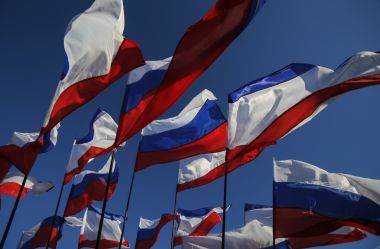Crimea: Church split stokes anger

Tensions in the Crimean peninsula following its annexation from Ukraine by Russia have spilled over into the Protestant community there, says a long-time observer of religion in the region.
Twenty-eight pro-Russian congregations split last month from the Kiev-based All-Ukrainian Union of Churches of Evangelical Christians-Baptists and joined Moscow's Russian Union of Evangelical Christians-Baptists (RUECB).
Crimea was incorporated into Ukraine in 1954. However, the anti-Russian "Maidan" protests which led to the ousting of former Ukraine President Viktor Yanukovich led to rising discontent in Crimea and pro-Russian demonstrations. Russian troops operating covertly captured key sites and the territory was annexed in March last year following a disputed referendum. The annexation caused outrage in Ukraine and was the precursor to the bloody civil war which has seen Russian-backed rebels take control of parts of the east of the country.
According to Dr Bill Yoder, at a conference in the Crimean resort of Simferopol, RUECB president Alexey Smirnov said that the involvement of his union was motivated solely by the "desire to support the churches and their service under new circumstances". He said that the RUECB would cooperate with all Baptist communities in the Crimean Republic "regardless of the legal status they have chosen".
However, a Ukrainian Baptist theologian, Mikhail Cherenkov, argued in a post after the conference that the leaders of Russia's Baptist Union were "no longer brothers". He said that the president of the Kiev Union, Valery Antoniuk, had accused the Moscow leadership of distributing one-sided information and that their interpretation of events carried "a Russian imprint".
Antoniuk had declined an invitation to attend the Simferopol conference. According to Cherenkov, the Ukrainian president had every reason to avoid the "shameful act".
Cherenkov spoke of the "creeping annexation" of Ukrainian territory, concluding: "I am no longer naïve. I once felt sorry for our Russian brothers, I felt their hurt and oppression, their humiliation and degradation. Now I see they themselves are also servants of the Leviathan. They are not only unhappy, they are also co-guilty. Forces from above have smashed in their front teeth, so now they are using the remaining ones to bite those who are lower, weaker and defenceless."
An RUECB pastor in Murmansk responded to Cherenkov by calling for the Church to focus on spiritual rather than political issues. "The powers-that-be have been redrawing the map for centuries," said Grigory Berg. "The issue of Crimea does not need to concern the church one iota. Did Jesus and his disciples spend their time lashing out at the occupying powers? Come to your senses! The Church should not be fighting for geographic territory, but rather for human souls."
A pastor in Odessa, Alexander Boychenko, said on Twitter: "Sad but true: Dishonesty, betrayal and slander . . . are blooming within the ranks of Ukraine's Evangelical Christian-Baptist brotherhood. I know, for I have experienced it myself. . . . But I believe that the love of Christ will win out in this situation. The triumph of evil can only be temporary. In the end, love always reigns victorious."











